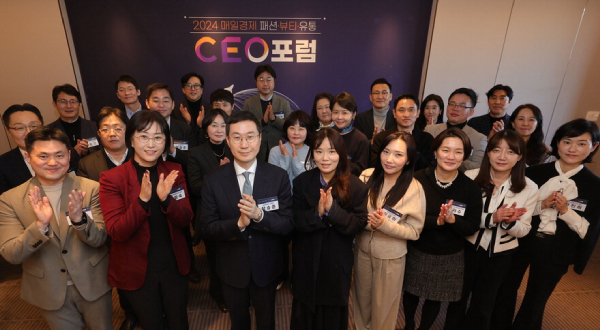
South Korean beauty sellers on Amazon have seen their sales surge by over 90 percent year-on-year, reflecting a growing wave of demand for K-fashion and beauty products, particularly from independent brands.
Speaking at Maeil Business Newspaper’s fashion, beauty, and retail CEO forum in Seoul on Wednesday, Amazon Global Selling Korea Head Hannah Shin highlighted the importance of global expansion for the survival of Korea’s retail industry. The event, held at the Shilla Seoul, drew key industry figures, including Maekyung Media Group Vice Chairman Chang Seung-joon, Sejung CEO Park Yi-ra, E-Land World CEO Jo Dong-ju, and J.ESTINA CEO Kim Yu-mi.
The forum aimed to explore strategies for Korean companies to expand their global footprint. Shin’s presentation, titled “Global Expansion Strategies for Korean Companies via K-Beauty,” showcased Amazon’s role in connecting over 10,000 South Korean sellers to 22 Amazon marketplaces since 2017. Revenue from newly onboarded sellers grew more than fourfold in 2024 alone, underscoring the rise of the cross-border e-commerce market.
Shin attributed the e-commerce market’s growth to the digitalization of consumption and the diversification of online shoppers, ranging from children to the elderly. Among various product categories, beauty products stand out globally. Independent brands such as COSRX, TIRTIR, ANUA, and Beauty of Joseon have gained traction among consumers in the United States and Europe, leveraging their unique innovations and high-quality offerings to build word-of-mouth success.
Shin identified three factors driving the K-beauty phenomenon: independent brands, skincare, and innovation. Many independent brands partner with manufacturers such as Kolmar Korea and Cosmax to produce affordable, high-quality products. Platforms like Amazon have widened consumer options, enabling smaller brands to thrive.
The global popularity of Korean films and dramas has also boosted interest in Korean celebrities’ skincare routines, fueling demand for products such as lotions, serums, sunscreens, and cleansing oils. Shin also cited examples of innovation in the beauty industry, such as color-changing hydrogel masks and advanced toner pads that double as facial masks, which have helped expand market opportunities.
“Innovation is the most critical factor for success in overseas markets, regardless of industry,” Shin emphasized, pointing to the evolution of products like toner pads and serum ampoules that cater to changing consumer needs.
Leadership was also highlighted as a crucial element for global expansion. Shin stressed the need for executives to take direct responsibility for localization strategies and branding. “It is essential for CEOs or senior executives to lead with commitment and actively engage in overseas ventures,” she said, criticizing the lack of proactive decision-making in some organizations.
During a Q&A session, one attendee expressed concerns about the challenge of balancing continuous innovation with business sustainability in an era of rapidly shifting trends. Shin responded by referencing the Pareto principle, which suggests that 80 percent of results come from 20 percent of efforts. She advised companies to focus on creating bestsellers that generate stable revenue while dedicating remaining resources to new product development.
By Park Hong-ju, Kim Hyo-hae, and Minu Kim
[ⓒ Pulse by Maeil Business News Korea & mk.co.kr, All rights reserved]
